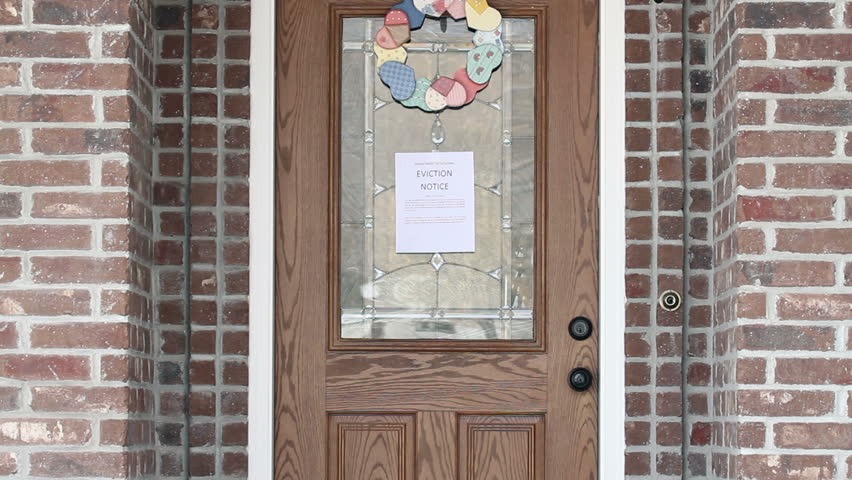Learning Guide to the Eviction Process in Minnesota
Guide to the Eviction Process in Minnesota
 An eviction action (known as Unlawful Detainer) is a court action in which a landlord asks to recover possession of the apartment or rental home from a tenant. A landlord must follow the proper legal process, and may not forcibly remove the tenant, exclude the tenant from entering the building or rental unit, change the locks, or shut off the utilities. The following information was generously provided by NationalEvictions.com
An eviction action (known as Unlawful Detainer) is a court action in which a landlord asks to recover possession of the apartment or rental home from a tenant. A landlord must follow the proper legal process, and may not forcibly remove the tenant, exclude the tenant from entering the building or rental unit, change the locks, or shut off the utilities. The following information was generously provided by NationalEvictions.com
You will find on our website more information for Landlords for Filing and Tenants for Defending an Eviction.
Most common reasons for filing an eviction:
A. Nonpayment of Rent
What happens when the tenant renting your Minneapolis apartment stops paying the rent? You may file an eviction action against the tenant for failing to pay the rent when it was due. However, the tenant may stop the eviction (called “redeeming the tenancy”) by paying past due rent, costs of the eviction action (including the court filing fee), and other requirements under the lease.
B. Lease Violations
What happens when the tenant renting your St. Paul duplex violates one of the terms of your lease? The lease must contain a “right of re-entry” or eviction clause for the landlord to evict a tenant for a material breach of the lease (except for nonpayment of rent and statutory violations). This clause gives the landlord a right to evict the tenant for violating lease provisions like disturbing other residents, causing damage to the property, unauthorized persons living on the property, or unauthorized pets.
A landlord may evict a tenant who engages in the following illegal activities prohibited by MN statute:
- Unlawful controlled substances in the premises or common area
- Unlawful use or possession of a firearm
- Stolen property in the premises or common area
- Prostitution
- Criminal gang activity
C. Tenant Remains in the Apartment or Rental Home After Getting a Notice to Vacate (holding over)
A holdover tenant is one whose lease has expired, or where proper notice to vacate was given, but the tenant remains in the rental unit without the landlord’s consent.
Eviction Action Procedure
It is important to serve the tenants properly when moving forward with an eviction action on tenants living in Minneapolis, St Paul, or Minnesota rental properties. Without proper service, the court will lack jurisdiction and the landlord may have to start over or ask the court to reissue the summons.
1. File the Complaint, Including:
- The full name and date of birth of the tenant(s), unless not known.
- Naming each adult resident whether or not named in the lease (use “John Doe” or “Jane Doe” if necessary).
- Full address of the rental property for which you are trying to regain possession.
- Facts which explain the reason for the eviction.
- Request to recover the property (re-gain possession).
The complaint may be signed by the property owner, attorney for the property owner (an attorney may be required if the property owner is a corporation), the person entitled to possession of the property, or an agent designated by the property owner (the agent must file a “Power of Authority in Eviction Action” with the court at the time of filing the complaint.
2. Get a Summons from the Court
The court will issue you a summons, which is a written notice that informs the defendant (the tenant in this situation) that a legal action has been filed and will be heard on a specific day. You must serve the summons at least 7 days before the court date as required by MN statute, and proof of service must be filed with the court in accordance with local court rules. – Finding Process Servers for Service of the Summons and Complaint Court Paperwork from our Directory of Process Servers on NationalEvictions.com
The Landlord Must Show Compliance with Minnesota Statute 504B.181
- Disclose in writing to the tenant and post in a conspicuous (easily noticeable) place on the premises the name and address of the person authorized to manage the premises (that is probably you, the landlord) and the landlord or agent authorized to accept service of process and receive and give receipt for notices and demands. OR
- Tenant must have been aware of this information at least 30 days prior to filing the action.
- The landlord must bring a copy of the complaint for each tenant and pay the court filing fee.
3. Serve the Summons and Complaint to the Tenant
Properly serving the tenant is critical. If the landlord doesn’t serve the renter properly, the court will lack jurisdiction and the landlord may have to start over or ask the court to reissue the Summons. The following is the proper way in which to serve the summons and complaint:
Personal Service
- Must be served by a person NOT NAMED a party in the action.
- Must NOT be served on a Sunday or legal holiday.
- If personal service is unsuccessful, you may try:
Substitute Service
If the tenant cannot be found in the county, service can be made on a person of suitable age and discretion who lives with the tenant. If personal or substitute service was successful, the process server (the one who served the summons and complaint) files a notarized Affidavit of Service with the court. If personal or substitute service was unsuccessful (service on the tenant was attempted twice, on different days, with at least one of the attempts made between the hours of 6:00 pm – 10:00 pm, you can try ‘Mail and Post.’
Mail and Post
With Mail and Post, the summons and complaint are mailed to the tenant’s last known address and posted at the premises (e.g. posted on the door). This procedure requires the preparation of affidavits, court filings of the affidavits, mailing, and posting in proper order. Failure to do the steps and filings in the correct order can result in a case getting dismissed.
- The Summons and Complaint are mailed to the renter’s last known address.
- The process server signs a notarized Affidavit of Not Found.
- The landlord or landlord’s attorney or agent completes notarized copies of the Affidavit of Plaintiff and Affidavit of Service by Mail.
- The Affidavit of Not Found, Affidavit of Plaintiff, and Affidavit of Service by Mail are filed with the court.
- The Summons and Complaint are posted on the premises at least 7 days before the court date.
- The Affidavit of Service by Posting is completed and filed with the court.
4. Eviction Trial
At trial, the burden is on the landlord to show that he or she is entitled to regain possession of the premises. Proof is often shown through the use of witnesses with firsthand information, photographs, landlord testimony, and documents like the lease, payment records, and correspondence with the tenant.
Common Defenses Used By Tenants
- Procedural Defenses – Landlord executed service improperly and/or completed the forms improperly.
- Habitability Defenses – Landlord failed to make repairs or comply with the covenants of habitability.
- Retaliation Defenses – Landlord took action in retaliation of tenant’s exercise of legal rights.
- Waiver of Eviction by Rent Acceptance – Landlord accepted rent payment after eviction action was filed without a written agreement.
- Trade Name Not Registered – Business operating under an assumed trade name not registered with the Secretary of State.
- No “Right of Reentry Clause – Eviction action filed for a lease violation, but there was no “Right of Reentry” clause in the lease.
5. Notice of Eviction
If the landlord prevails at trial, a Writ of Recovery of Premises and Order to Vacate may be requested by the landlord for a fee. The sheriff must service the notice upon the tenant who then has 24 hours to vacate the premises. The court may suspend the issuance of the writ for up to 7 days upon showing by the tenant that immediate vacation of the premises would impose a substantial hardship.
If the tenant fails to comply with the demand to vacate the premises, the landlord must schedule a move-out date with the sheriff and notify the tenant of the time scheduled with the sheriff. The landlord may store the tenant’s personal property on the premises or use a licensed and bonded moving company to remove and store at another location.
Many times Taking a Tenant can be complicated for any property Owner. If you wish to hire an Attorney to take care of an Eviction – Find Law Firms on our Directory on NationalEvictions.com
Tags: Eviction Information, Landlord Information, Minnesota Eviction Articles, Tenant Information




 Professional tenants are a landlord’s worst nightmare, the ones you read about in the newspaper. These individuals are notorious for cheating the system and using loopholes, leaving landlord’s with lost rental income, a damaged property, and a huge headache. They will complain about the smallest of messes and become the largest hassles.
Professional tenants are a landlord’s worst nightmare, the ones you read about in the newspaper. These individuals are notorious for cheating the system and using loopholes, leaving landlord’s with lost rental income, a damaged property, and a huge headache. They will complain about the smallest of messes and become the largest hassles.









